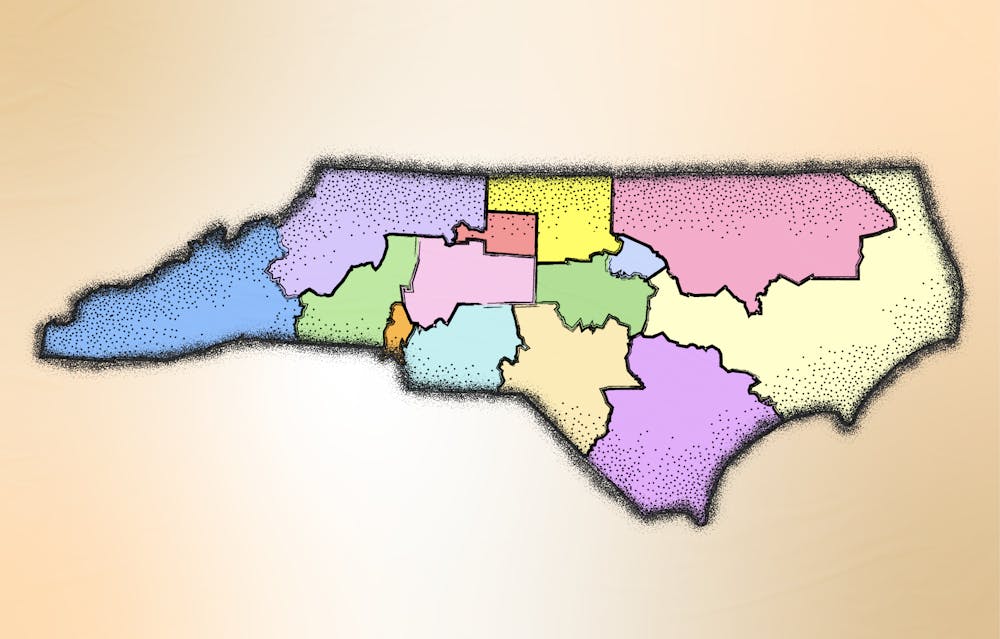“What has been described as the most political activity in American politics is controlled by the Republicans, and they will draw the maps — as any political party will do — to benefit their majority status,” Bitzer said.
The N.C. state legislature is currently controlled by the Republican Party, and has been since 2011.
Bob Phillips, the executive director at Common Cause North Carolina, a nonpartisan organization which fights against gerrymandering and other efforts to subvert free elections, agreed with this sentiment.
“Rule number one about drawing maps when partisans do it is to draw the maps to advantage their party,” Phillips said. “It’s human nature, particularly in the world of partisan politics where you’re going to try to always strengthen your hand.”
Phillips also emphasized that gerrymandering is not unique to either party, but is practiced whenever a majority exists.
“It’s done across the country where you do not have any kind of independent or citizen commission,” Phillips said. “In Maryland, New York and Illinois you’ve got Democrats doing it, and in North Carolina, Texas, Georgia and Florida, Republicans — just to name a few.”
North Carolina’s congressional maps are subject to a few restrictions, most notably that all districts must have an equal population and that racial data cannot be used. However, Clark argued that these requirements did not ensure fair maps.
The biggest issue, Clark noted, was the disregard for regional integrity, or the willingness by map-makers to divide counties into different districts.
“No county should be split more than one time in the establishment of congressional districts,” Clark said. “This is cracking the population in order to distribute it, and weakens the ability of the affected population to express themselves favorably at the election booth.”
Clark claimed that his map, which does not split a county more than one time, inherently protects the state against gerrymandering.
This opinion is supported by the non-partisan Princeton Gerrymandering Project, which grades the maps proposed by state legislators across the country. While Clark’s map received an overall grade of A, others, such as the CBK-3 map, proposed by N.C. Sen. Warren Daniel (R-Avery, Burke, Caldwell), received an F.
Clark also noted that this year’s redistricting decision will be important for years to come.
To get the day's news and headlines in your inbox each morning, sign up for our email newsletters.
“What happens during this process is going to have a significant impact on life at all levels of politics, whether it be the local level, whether it be the district level or whether it be at the state level,” Clark said.
@HarrisonGGummel
@DTHCityState | city@dailytarheel.com



